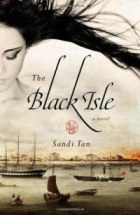
And the Westboro 'Church', for one, may have been a poor choice for a target; that nest of vipers makes LulzSec look like CARE.
Wikileaks, meanwhile, is becoming a joke, no thanks to its 'leader's' antics. Somewhere along the way, like the former LulzSec crew, he lost the plot. Thus, the movement unravelled and faded into the background under the glare of his grandstanding.
Would things have turned out differently if the Assange, Topiary, et al remained an enigma? Perhaps that would be answered by another Wikileaks or LulzSec, which is probably a matter of time.
This book was a good piece of journalism, but Parmy Olson didn't quite tell the 'full story' of Anonymous, which is still out there, and still making waves.
A glimpse into the abyss
Parmy Olson makes it very, very hard for one to keep calm and go onlinefirst published in The Star, 16 November 2012
We Are Anonymous is probably the scariest book you'll read in 2012. Parmy Olson's book on the faceless, amorphous Internet collective is enough to make you distrust your own passwords – a well-founded fear these days when news of hacking, data theft and destruction of people's digital lives are increasingly creeping into the headlines.
But, as the subtitle says, this book is more about the rise and fall of LulzSec, the hacker group that claimed responsibility for a number of high-profile hackings in the past several years.
LulzSec's leap into notoriety began with the failed attempts to infiltrate Anonymous by cybersecurity firm HBGary Federal's former CEO Aaron Barr. It was only after several members of Anonymous locked him out of his social media accounts and published his e-mails did he realise he either needed a much bigger boat and harpoon ... or easier prey. Barr resigned, and HBGary Federal is now defunct.
We do get a peek into the underbelly of the Internet where groups such as Anonymous lurk. But as the book progresses, the focus shifts to LulzSec. We see this group break away from Anonymous and, through acts of digital theft and vandalism aided by hackers outside LulzSec, help establish the myth of Anonymous as a world-shifting underground movement – until a combination of hubris, dissent and betrayal brought it down. A handy timeline of events is available in the book for reference.
Olson's research is voluminous, as the end notes testify. However, I wasn't quite as awed by Anonymous's role in the "global cyber insurgency" (which, so far, hasn't lived up to the hype) as I was overwhelmed by its potential to cause havoc in our online lives (as well as by the wealth of computer jargon within).
One comes away with a very grim outlook of the future of computer security.
It may not be Olson's intent, but this book makes it hard to see members of Anonymous, LulzSec and other similar groups as anything but selfish, self-aggrandising, amoral and extremely computer-savvy miscreants who amuse themselves by hacking into systems, stealing data, and messing with the lives of others. One example is "William", a hacker who, among other things, duped some Facebook users into giving him nude photos of themselves.
And these people are among those whom former LulzSec member Topiary claims "owns" the Internet: "The Internet belongs to the trolls and the hackers, the extremists and the enthusiasts; it will never cease to be this way," he wrote in a "missive" published near the end of this book. Which includes everything that the rest of us puts on the Web, one presumes, and if these guys want to mess around with all that, there is, apparently, nothing the rest of us can do about it.
My blood runs cold thinking about that.
It's said that one is more likely to die in a road accident than be attacked by a shark. Thousands pass their days online without incident, so one shouldn't be unduly worried. Olson, arguably though, makes it very, very hard to keep calm and go online.
This review, the 50th done for The Star was based on a complimentary copy
We Are Anonymous
Inside the Hacker World of LulzSec, Anonymous, and the Global Cyber InsurgencyParmy Olson
Little, Brown (June 2012)
498 pages
Non-fiction
ISBN: 978-0-316-22765-0
Categories:
Book Reviews,
The Star



